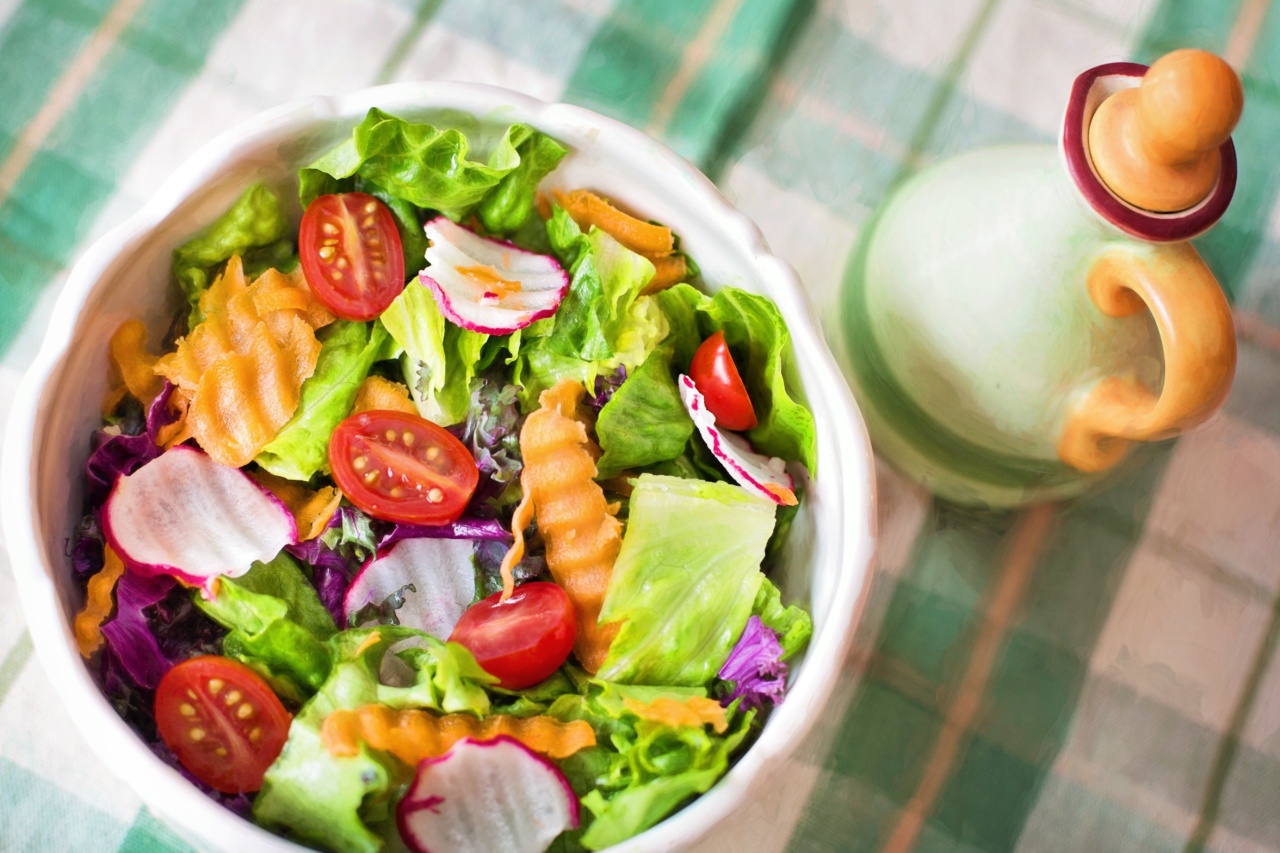With vegetarianism gaining popularity worldwide, it is essential to address concerns regarding its impact on pregnancy.
Many women wonder if following a vegetarian diet during pregnancy can pose any risks to their health or the development of their baby. In this article, we will explore the potential pregnancy risks associated with a vegetarian diet and provide valuable insights to help expectant mothers make informed dietary choices.
The Benefits of a Vegetarian Diet During Pregnancy
Pregnancy is a crucial time for ensuring optimal nutrition, as the developing fetus relies solely on the mother’s nutrient intake. Fortunately, a well-planned vegetarian diet can offer numerous benefits for both the mother and the baby:.
1. Adequate Nutrition
Contrary to what some may think, a properly balanced vegetarian diet can provide all the necessary nutrients needed during pregnancy.
Essential nutrients like protein, carbohydrates, fats, vitamins, and minerals can be readily obtained from plant-based sources.
2. High in Fiber
Vegetarian diets typically contain more fiber due to the abundance of fruits, vegetables, whole grains, and legumes. This increased fiber intake can help alleviate common pregnancy discomforts like constipation.
3. Lower in Saturated Fats and Cholesterol
A vegetarian diet can naturally be lower in unhealthy saturated fats and cholesterol, promoting heart health for both the mother and the baby.
4. Reduced Risk of Gestational Diabetes and Hypertension
Studies have shown that vegetarian diets may help lower the risk of developing gestational diabetes and hypertension during pregnancy, thus protecting the health of both the mother and the baby.
5. Plant-Based Sources of Iron and Calcium
While iron and calcium are commonly associated with animal-based products, they can be obtained in ample amounts from vegetarian sources such as leafy greens, legumes, fortified cereals, and soy products.
Potential Risks of a Vegetarian Diet During Pregnancy
Although a vegetarian diet can offer many benefits, there are a few nutritional considerations that pregnant women following this dietary choice should be aware of:.
1. Insufficient Protein Intake
Protein is essential for fetal development and maternal health. Pregnant women following a vegetarian diet must ensure they consume enough protein-rich plant-based foods such as tofu, tempeh, quinoa, legumes, and nuts.
2. Vitamin B12 Deficiency
Vitamin B12 is primarily found in animal-based products and is crucial for the development of the baby’s nervous system.
Pregnant women following a vegetarian or vegan diet should consider B12 supplementation or consume fortified foods like plant-based milk or breakfast cereals.
3. Omega-3 Fatty Acids
The omega-3 fatty acid DHA is important for brain and eye development in the fetus. While plant-based sources like flaxseeds and walnuts provide omega-3s, they contain a different type called ALA.
To ensure sufficient DHA levels, pregnant vegetarians may consider a microalgae-based DHA supplement.
4. Iron and Zinc Absorption
Plant-based sources of iron and zinc are not as readily absorbed by the body as animal-based sources.
To enhance absorption, pregnant women on a vegetarian diet should consume iron-rich foods with vitamin C sources (such as citrus fruits) and consider pairing iron-rich and zinc-rich foods with fermented or sprouted options.
5. Caloric Intake
Adequate caloric intake is crucial during pregnancy to support the additional energy requirements.
Vegetarian diets can sometimes be low in calories, so it is important for pregnant women to ensure they consume enough nutrient-dense foods to meet their energy needs.
Conclusion
A well-planned vegetarian diet can provide all the necessary nutrients for a healthy pregnancy. However, pregnant women following a vegetarian diet should be mindful of potential nutrient deficiencies and make appropriate dietary adjustments.
Consulting with a healthcare professional or registered dietitian can help ensure a balanced vegetarian meal plan that meets both maternal and fetal nutritional needs.




























